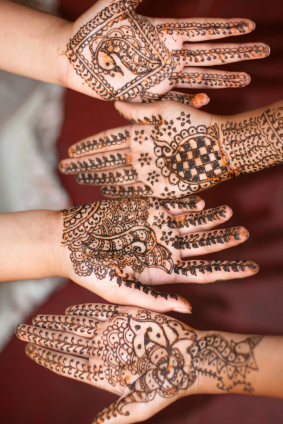
Henna tattoos are popular both in the United States and abroad for religious ceremonies and for people who want a tattoo but are not ready to plunge into permanent body ink. Additionally, vacationers, traveling through Asia and the Middle East often get henna tattoos on their journeys. Unfortunately, Middle Eastern henna tattooing has been associated with a higher risk of leukemia.
A study conducted by a team from hospitals in the United Arab Emirates found that nearly every female in UAE regularly uses henna to decorate their nail, hands, feet, and to beautify a big area of the skin of their arms and legs for cosmetic reasons. The henna is extensively brought in to be used at various salons in the UAE. When using the henna, it is basically mixed with benzene and additional petroleum products for color enhancement.
Researchers have been able to establish that incidences of leukemia in local women are much higher as compared to any other place. They are of the opinion that one probable cause could possibly be the popular regional custom of using henna to adorn the skin.
It is not the henna itself that is the carcinogen, but the compounds that are used as a solvent for the henna powder. Benzene, which is identified to be a cancer-causing agent and is prohibited for this reason in a number of nations, is widely used in transitioning the henna powder into tattoo form.
